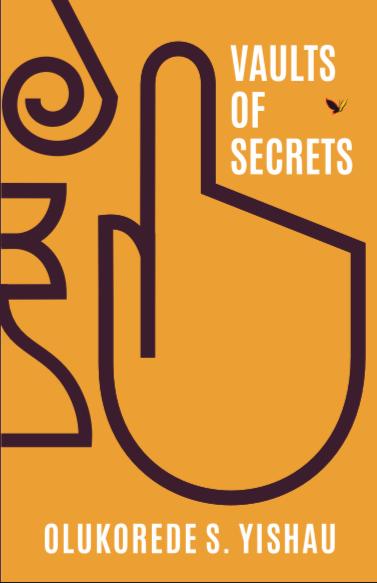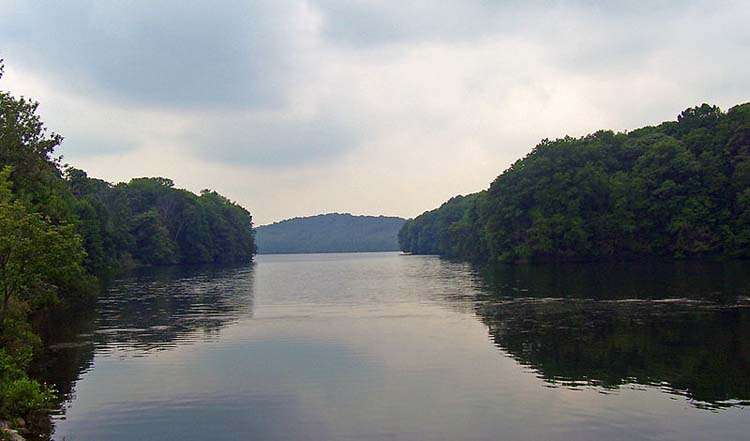BY FOLORUNSHO COKER
With the focus this year being on Tourism and Rural Development, which is no doubt crucial and more than timely, still for me the 2020 edition of the World Tourism Day, being observed far and near in our world under a very peculiar circumstance today, speaks essentially to the notion of resilience. Human resilience. The resilience to overcome difficulty, undesirable situations, and a dreadful pandemic. More importantly, it about the need to build resilient systems that can keep advancing the human experience, despite manifestations that attempt to constrict this.
That tourism is capable of resilience, and reinvention, is not in doubt, as long as the imperative for humans to connect and renew their relationship with space, which is fundamental, continues to exist. This is clear in the determination that has seen to the convocation of this year’s World Tourism Day, even as many of the activities are virtual and lean on digital technologies. It is the liberating possibilities of technology that also inform innovations that have led to the holding of virtual visits, tours, and concerts, etc., which reinvent much of what is constitutive of tourism.
As invoked in the theme of this year’s gathering, tourism certainly has an integral relationship with rural spaces and their development, as hundreds of locations across the world, which offer the appeal that motivates visits are far away from the urban centres, whether as designated world heritage sites or simply unique landmarks and physical spaces. These are places of economic opportunity that support ways-of-life, jobs and incomes, but could equally exhibit challenges around proper development.
Advertisement
More so, with the adverse consequences that have come with the COVID-19 pandemic, there is need for concerted efforts at reimagining tourism to create more resilient opportunities for the survival and progress of people in rural locations. Fortunately, we had prefigured this in our programme design at the Nigeria Tourism Development Corporation, as I will broach shortly.
The past seven months, since our various countries and regions were impelled to simultaneously lockdown before their gradual reopening at this time, have impacted the world in a most unprecedented way – at least not in a way that has been witnessed in more than a generation. These have been at the instance of an invisible adversary that has assailed mankind, with its consequences boldly etched across the spectrum of our ways-of-life, while giving rise to a novel way of being now considered as the ‘new normal’ or ‘re-imagined living’.
This ‘new normal’ has seen to the reordering of our lived experiences in very significant ways, as it exacts its quite heavy demands on the essence that defines us – the sheer physicality of human-to-human interaction, and contact. And, perhaps the sector that shares the largest burden of this ‘disembodiment’ is tourism, whose lifeblood is hinged on the need to witness and partake in experiences that mainly involve physicality, contact.
Advertisement
The advent of the coronavirus before the close of the previous year and its wild leaps into 2020, dragging in tow the morbidity referred to as COVID-19, alongside grisly body counts, from the Southern to the Northern Hemispheres, has left much of the world under a pall of the fear of contagion. And tourism has become strapped to a respirator, struggling for breath. This has driven many to the hasty prognosis of the ‘death of tourism’, discounting the inherent resilience in the human spirit.
Yet, sadly, the impacts are evident to all across urban centres, peri-urban and rural spaces – many of which are also hubs of tourist convergence – with the unravelling of economies, loss of livelihoods, and upsurge in existential angst, growing in tandem with desperation.
Prior to the emergence of the coronavirus, as statistics from 2019 reveal, tourism and its extensive value chain contributed some $8.9 trillion to the world GDP, which was about 10.3 per cent of the total GDP, while also accounting for 330 million jobs worldwide, making for one in every ten available jobs. It rose to become the third largest sector of the global economy, constituting 7 per cent of world trade, 6.8 per cent of total exports and 28.3 per cent of total services export.
Tourism was responsible for $1.7 trillion visitor exports, in addition to attracting $948 billion in capital investments, and earning 4. 3 per cent of total investments in the year. The sector grew faster than any other aspect of world trade in the earlier five years. And, in Nigeria, it was the source of 34 per cent of the GDP and 20 per cent of jobs.
Advertisement
Quite unfortunately, the rather deleterious impact of the coronavirus pandemic in 2020 saw to the decline of about 22 per cent in world tourism in the first quarter, with indications that the figure could swell to 80 per cent before the end of the year, and occasion a loss of close to 120 million jobs globally. Much of this loss pertains to jobs in medium and small enterprises, having women and youths bearing a significant aspect of the burden.
Equally, there are estimates that with the restriction and drop in consumer demand, the effect of the pandemic would lead to a loss of close to $1.2 trillion in international visitors’ spending, an erosion of up to 2.8 per cent of the world’s GDP, all snowballing into a 4.9 per cent contraction in the world GDP by the end of 2020. This discouraging number count bodes ill for many nations, and has particularly created economic emergencies for countries largely depending on tourism for survival.
While it is occurring at a time of critical impact to the human experience, this year’s World Tourism Day is the 40th anniversary of the reflection on the role of a sector of huge social, cultural and economic value to humanity. And, one that has the inherent potential of enabling the attainment of a number of the United Nation’s Sustainable Development Goals (SDGs).
As articulated by the United Nations World Tourism Organisation (UNWTO), this year’s emphasis on Tourism and Rural Development “celebrates the sector’s unique ability to drive economic development and provide opportunities outside of big cities, including in those communities that would otherwise be left behind.” Furthermore, “World Tourism Day 2020 also highlights the important role tourism plays in preserving and promoting culture and heritage all around the world.”
Advertisement
As much as the theme of this year’s observation accurately points to the huge economic prospects offered by tourism in the rural areas, yet the impact of COVID-19 has equally outlined the great vulnerability of these spaces to adverse situations, particularly of their women and youth, in a manner that intensifies poverty, whilst accelerating the rates of migration to cities, and hence deepening the rural-urban divide.
Regrettably, communities in rural areas are less able to survive the impacts of COVID-19 in the short and long terms due to their greater percentages of aging people, lesser incomes and a more vast digital divide. Still, the reinvention of more resilient tourism will drive the recovery of the global economy, especially in rural communities, where it is a leading provider of jobs, for women and youths, thereby mitigating the urge towards the urban drift and its raft of newer challenges.
Advertisement
In Nigeria, the necessity of building the resilience of tourism as a platform of economic opportunity and advancement that positively impacts rural development prefigured the assault of COVID-19. But this now finds greater significance in its ability to engender national economic recovery – in a country seeking to retrieve itself from the tipping point or impact of the coronavirus – through the growth of employment and an expanded base for commerce.
Since 2017, the Nigeria Tourism Development Corporation, which I lead, designed a programme around the enormous potentials of domestic tourism, known as Tour Nigeria, which traverses all the key attractions in the country. This was done in recognition of the importance of tourism as a vital frontier of economic development.
Advertisement
Key flanks of the policy outlay that went into the programme design saw the need to expand inbound tourism in the country at a time when the naira had come under the sort of pressure that forces people to look inward and consume more of their country. This is a tested approach in growing national currencies and the economies they are hitched to.
Beyond this was the necessity of shoring up Nigeria’s trove of world-renowned heritage sites to global standards, and rallying human traffic and deeply memorable experiences around this. A few of these locations include the Osun-Osogbo Sacred Groove in Osun State, the Ogba Ukwu Cave/Waterfalls and the Ogbunike Cave in Anambra State, the Kano City Wall and a host of others.
Advertisement
Occurring alongside this is the curating of major events like the ‘Nigerian Flavours’ campaign, which promotes the country’s food, music and arts; besides other undertakings comprising a repackaging of the traditional Kano Durbar, the Iri ji Yam Festival in Anambra State, the Ogidi Ijumu Festival in Kogi State, Osun Osogbo, etc. These are part of a range of activities that Tour Nigeria has been primed to serve since then, and whose endeavours require to be ramped up in this day and time, and in line with all the safety protocols of engagement in a season of COVID-19.
As such, the aggressive promotion of domestic tourism is crucial to re-energising the local economy and rural development in Nigeria. Tourism advances the promotion of diverse indigenous cultural heritages and traditions in the most unique ways, while occurring as vehicle for the integration of different ethnic groups, the fostering of peace and development, in tandem with the creation of jobs and economic value that gives young people the lifelines that would halt rural to urban migrations.
The enabling of domestic tourism through the Tour Nigeria model will stimulate the tourism value chain that is primed to boost rural economies and development. This is due to its affordability and the lack of bureaucratic impediments around its implementation. More so, it provides education and information to people on the diversity of experiential benefits that exist across the country, whilst enhancing the creative sector, revitalising local craft industries and ultimately motivating infrastructural upgrade.
Attaining this has been through the framework of a Nigerian Tourism Road Map aggregated in the acronym of CHIEFS, which relates to the introduction of better ‘corporate governance’ in the tourism sector, development of the ‘human capacity’ and ‘infrastructure’ required to power it. And also, the creation of excitable ‘events’, drive towards securing the requisite ‘finance’ to make it work, and fashioning the basis of ‘sustainability’ to enhance tourism’s ability to evolve into the next powerhouse of the Nigerian economy.
As the world observes the World Tourism Day, we need to keep looking to that core resilience that defines the human spirit to enable us transcend all that might seek to detain our capacities and delimit progress, whether as a virus, disease or any other morbid manifestation.
Coker is the director-general of the Nigeria Tourism Development Corporation (NTDC).
Views expressed by contributors are strictly personal and not of TheCable.






